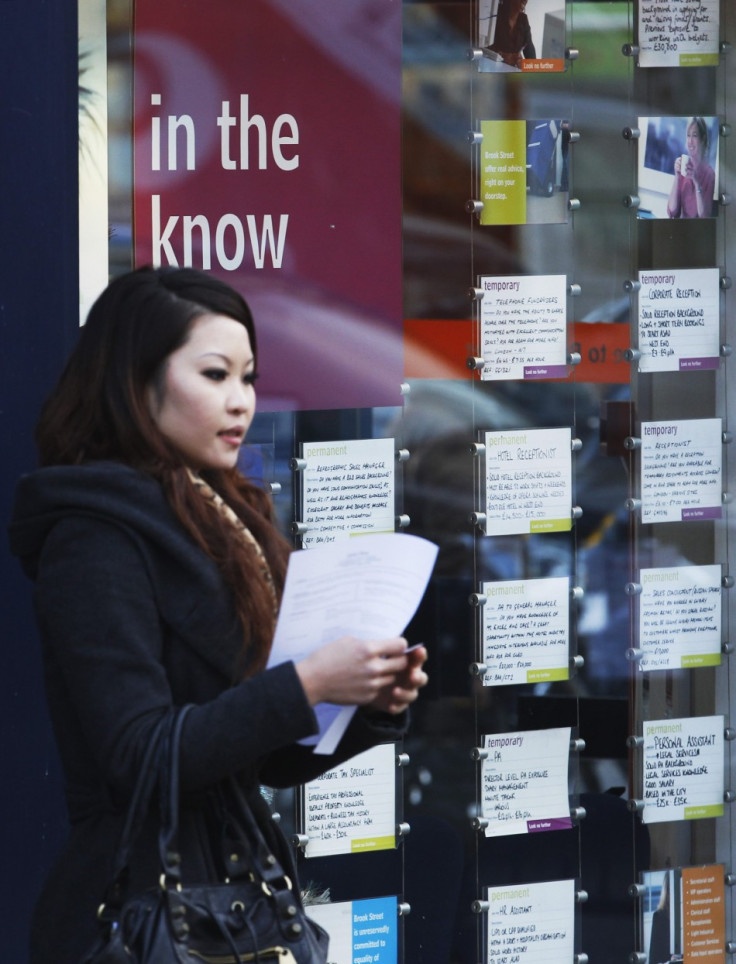'Peculiar' UK Employment Hits Record High as November Jobless Claims Fall [VIDEO]

The UK's unemployment rate held steady at 7.8 percent while new claims for jobless benefits fell more than expected as Britain's improving labour market continues to confound experts.
More than 29.6m people were recorded as employed in the three month period ending in October, the Office for National Statistics said Wednesday, a 40,000 increase from the previous period and the highest total on record. Claims for jobless benefits unexpectedly fell by 3,000 last month, the ONS said, from a revised October rise of 6,000, taking its measure of unemployment to 4.8 percent.
The more broadly watched International Labour Organization's reading, measured over a three month period, was held at 7.8 percent after a decline of 82,000 jobless. Around 2.51m were registered as out-or-work, the lowest total since the March to May period in 2011.
Average weekly earnings, the ONS said, rose by an annual 1.8 percent in the three months ending in October, a slightly slower pace than analysts had anticipated. Stripping out bonus payments, the earnings figure advanced by a slower-than-expected 1.7 percent.
"Another decent report showing the jobs sector being in much better health than the macro economy," Investec economist Victoria Clarke told Retuers. "We have seen employment continue to pick up, claimant counts falling and ILO unemployment has remained steady. Overall, further evidence that the flexibility of the UK jobs market continues to support some of those headline figures."
The data comes as investors appear increasingly concerned that the UK could slip back into a "triple-dip" recession if the economy shrinks this quarter and in the first three months of next year. Analysts expected a modest 0.2 percent dip in output for the final three months of this year and meagre growth of around 0.1 percent in the first quarter of 2013.
"The peculiar performance of the labour market in recent years - underpinned by flexible working arrangements and pay restraint - has meant that the damage inflicted by the financial crisis has been substantially less than what had been expected given a fall in output akin to that suffered in the 1930s," wrote RBS economist Ross Walker in his annual forecast for the British economy. "2013 is likely to see some normalisation or convergence between the GDP and employment data (ie, a modest pick-up in the former alongside a moderation in the latter)."
"The unemployment rate is lower now than we expected in March," the Office for Budget Responsibility said in its latest Economic and Fiscal Outlook on 5 December. "Reflecting the weaker growth outlook, we expect the unemployment rate to increase slightly over the coming year - peaking at 8.3 per cent at the end of 2013 - before recovering gradually from 2014 and reaching 6.9 per cent at the end of 2017."
© Copyright IBTimes 2025. All rights reserved.





















